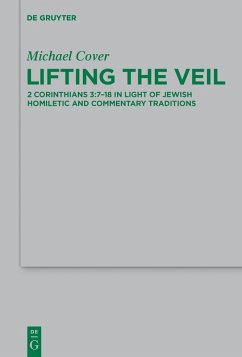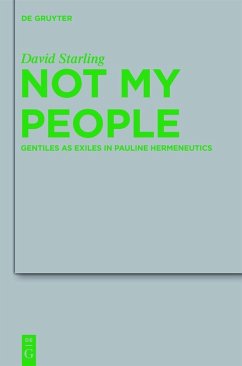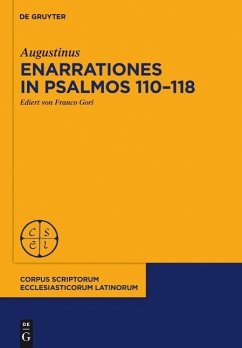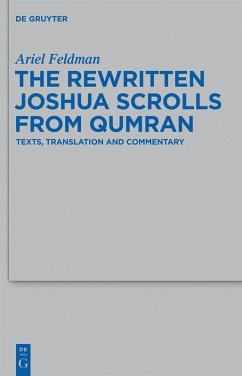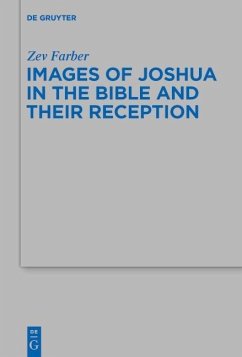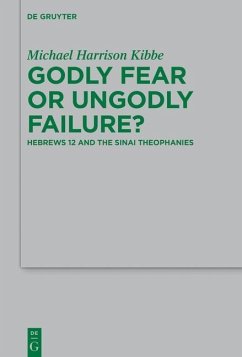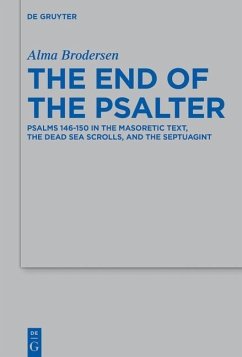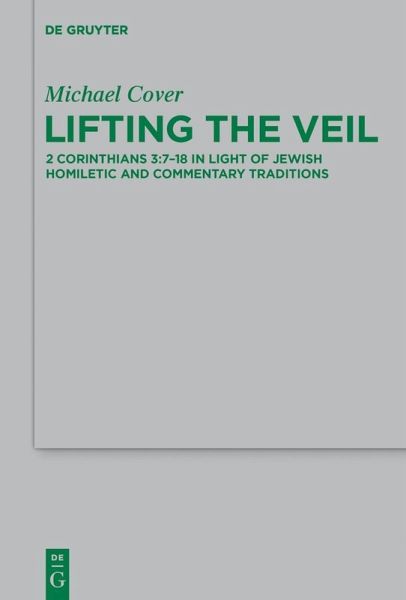
Lifting the Veil (eBook, PDF)
2 Corinthians 3:7-18 in Light of Jewish Homiletic and Commentary Traditions
Versandkostenfrei!
Sofort per Download lieferbar
97,95 €
inkl. MwSt.
Weitere Ausgaben:

PAYBACK Punkte
49 °P sammeln!
What accounts for the seemingly atypical pattern of scriptural exegesis that Paul uses to interpret Exodus 34 in 2 Cor 3:7-18? While previous scholars have approached this question from a variety of angles, in this monograph, Michael Cover grapples particularly with the evidence of contemporaneous Jewish and Greco-Roman commentary traditions. Through comparison with Philo of Alexandria's Allegorical Commentary, the Pseudo-Philonic homilies De Jona and De Sampsone, the Anonymous Theaetetus Commentary, the Dead Sea Scrolls, Seneca's Epistulae morales, and other New Testament texts, Paul's inte...
What accounts for the seemingly atypical pattern of scriptural exegesis that Paul uses to interpret Exodus 34 in 2 Cor 3:7-18? While previous scholars have approached this question from a variety of angles, in this monograph, Michael Cover grapples particularly with the evidence of contemporaneous Jewish and Greco-Roman commentary traditions. Through comparison with Philo of Alexandria's Allegorical Commentary, the Pseudo-Philonic homilies De Jona and De Sampsone, the Anonymous Theaetetus Commentary, the Dead Sea Scrolls, Seneca's Epistulae morales, and other New Testament texts, Paul's interpretation of Exodus emerges as part of a wider commentary practice that Cover terms "secondary-level exegesis." This study also provides new analysis of the way ancient authors, including Paul, interwove commentary forms and epistolary rhetoric and offers a reconstruction of the context of Paul's conflict with rival apostles in Corinth. At root was the legacy of Moses and of the Pentateuch itself, how the scriptures ought to be read, and how Platonizing theological and anthropological traditions might be interwoven with Paul's messianic gospel.
Dieser Download kann aus rechtlichen Gründen nur mit Rechnungsadresse in A, B, BG, CY, CZ, D, DK, EW, E, FIN, F, GR, HR, H, IRL, I, LT, L, LR, M, NL, PL, P, R, S, SLO, SK ausgeliefert werden.




